
تبلیغات

موضوعات

جستجو

پیوندهای روزانه

لینک دوستان
- دریافت رایگان این قالب
- سایت عاشقانه ماندگار فان
- سایت عاشقانه عشق آفرین
- جامعه رادیو اماتوری ایران
- سازمان تنظيم مقررات و ارتباطات راديوئي
- شرکت اروم الکترونیک
- فروشگاه قطعات الكترونيكي
- ARRL • Devoted Entirely to Amateur Radio
- درددل های یک بازنشسته
- نخستین سایت آموزشی رادیو آماتوری در ایران
- نشریات آماتوری
- EP2MRD
- QRZCQ - The database for radio hams
- شناسه تخصيص نحوه دستورالعمل ايستگاه به ارتباط راديويي هاي ) Call Sign ( دستورالعمل ارتباط شناسه تخصيص نحوه ايستگاه به راديويي
- رادیو آماتوری
- کلوپ رادیو آماتوری ایرانیان
- ارسال لینک

صفحات جانبی

امکانات جانبی
 آمار
وب سایت:
آمار
وب سایت:
بازدید دیروز : 7575
بازدید هفته : 22249
بازدید ماه : 24895
بازدید کل : 2257105
تعداد مطالب : 673
تعداد نظرات : 121
تعداد آنلاین : 1
راهنماي آزمون راديو آماتوري
 |
 |
|
Ham Radio Exam Study Tips(how to “study smart”)by John Cunningham, W1AIOver the years I've helped thousands of students get ham radio licenses and upgrades. Here are some things I've learned along the way.
Tip #1: It's easier than you think
Did you realize that you're already halfway there, even before you start studying? On this multiple-choice exam, you can expect to get 25% correct just by guessing, and you only need 75% to pass!
Tip #2: Challenge yourselfIf you're having trouble getting motivated to study:
Tip #3: Don't dabbleDon't spread your studies over a period of many months (or even years), because you'll waste too much time relearning things you forget. Try to average a minimum of 30 minutes per day. An hour or more is even better, especially if you're studying for the Extra. Treat it like removing a band-aid, and get it over with quickly. There's no such thing as a study session that is “too long.” I've heard countless reports from students who put in heavy study sessions in the days leading up to their exam, then passed with flying colors. I've never heard anyone complain that they “overstudied” and then suffered from brain meltdown during the actual exam. Everyone worries about their brain turning to “mush,” but it never seems to happen. Study sessions closest to the exam date are the most valuable. You're going to forget things you learned weeks or months in advance, but you will remember a surprising amount of the material you see in the last couple of days.
Tip #4: Focus on the examIf you were studying for an arithmetic test, you probably wouldn't read biographies of famous mathematicians. More likely, you'd study the material that's actually going to be on your test. Unfortunately, the ham radio license manuals wander heavily off-topic, delving into many subjects not on the exam. By comparison, we try to teach everything you need to know to understand the questions and answers, but not to make you an electrical engineer. If you have plenty of time and motivation, there's no harm in studying all that other stuff. However, if your primary goal is the license or upgrade, your best bet is to focus on the materials actually on the exam. Later, you can research other ham radio topics, for which the ARRL Handbook for Radio Communications Time spent reading lengthy, off-topic articles in the ham radio license manuals doesn't count towards your exam study time.
Tip #5: Stay in study modeStay in Study mode, and resist the temptation to take lots of practice exams. Practice exams are not a good way to learn. Study mode has the informational texts and intelligent repetition that make our site effective. After you've pretty much mastered the materials, there's no harm taking a few practice exams to boost your confidence for the actual exam, but those don't count towards study time.
Tip #6: Skip math questionsIf you have plenty of time to study and hope to get a perfect score on the exam, you should answer all the questions. Otherwise, make liberal use of the skip buttons. In particular, if it's going to take you more than about 30 seconds to calculate an answer, skip it. The software will keep presenting these questions every 8 hours or so, but just keep skipping them. Especially on the Extra exam, it's way too easy to devote 25% of your study time to the math, which will only be 10% of the questions on your exam. Your study time is more effectively invested elsewhere. So click Skip all calculations for now and focus on the easier questions! If you don't believe me, check out my analysis of How Much Math is on the Amateur Radio Exams?
Tip #7: Leave all the topics enabledYou can enable and disable individual topics on the Choose topics screen, and thus limit a study session to one specific subject. In fact, some students strongly prefer this method. I discourage this practice for two reasons. First, the question pools are not organized into a logical learning order. For example, in the Technician question pool, concepts like power and frequency are referenced in the first section (FCC Regulations), but they are defined in the fifth section (Radio and Electronic Fundamentals). If you study the question pools in their original order, you will see many such terms referenced before they are defined. Our courseware has a built-in learning order, based on the idea that all terms should be defined before they are used. Leaving all the topics enabled allows our software to present the materials in that logical learning order. Also, leaving all the topics enabled lets our intelligent repetition algorithm repeat questions when you need to see them. Our goal is to repeat questions just before you forget the answers. However, we can't repeat them if you've disabled the topic. You therefore lose much of the power of our intelligent repetition.
Tip #8: Adjust repetition delayPlay with the Repetition delay factor on the My options screen. The default value of 1.0 is good for our typical student — a 60-year old man whose memory isn't quite what it used to be. A higher value gives less repetition, and thus moves you through the material faster. Here are some reasons you might want that:
A lower value means more repetition:
You can change this factor based on your mood. For example, if you're feeling particularly awake in the morning, increase the repetition delay to get more new material. If you're feeling too tired in the evening to tackle anything new, lower it to get more review. If it looks like you're going to run out of study time before you run out of study materials, gradually increase your repetition delay factor as your exam date approaches. One month before your exam date, you need lots of repetition to drill the information into your long-term memory. However, if by the morning of the exam you haven't seen all of the materials, you should be spending all of your time on new materials with essentially no repetition. At that point you might need a repetition delay factor of 1000.0 or more. The repetition delay factor puts the control into your hands, allowing you to make the most effective use of your study time.
Tip #9: Last-minute crammingIf you've completely run out of time, your test is coming up in the next day or two, and you haven't even seen all the materials, it's time to pull out all the stops:
Tip #10: Take multiple exams in one sessionDon't be afraid to take multiple exams in a single VE session. We've had at least one hundred students go “from zero to Extra” in a single day. Some students fear that studying something new will somehow erase what they've already learned. However, these exams are so closely related that studying the next level reinforces, not erases, what you know. For example, when you learn about dipole antennas in the General course, it reinforces everything you learned about vertical antennas in the Technician course. I've helped thousands of people pass, and I've never once had a student fail a lower-level exam and blame it on the time spent studying for a later one. Not once! I recommend that the more precocious students start their studies with all the topics for all the courses enabled simultaneously, allowing the system to follow its logical learning order across the entire question set. That's the most efficient way to study your way from zero to Extra. As the exam date nears, you can assess your readiness on a per-exam basis and narrow your study to those exams that need the most work. The more cautious students will probably prefer to study one course at a time. However, even for this crowd, I do recommend some overlap. When your score gets up around 75% on one course, leave those course topics enabled, and also enable the topics for the next course. That will let the system start introducing materials from the next level as it finishes and solidifies your learning of the earlier course. It's a more efficient way to study.
Tip #11: Don't lose sight of your objectiveThe whole world is waiting after you get your license. So “get 'er done” and start having some fun! Studying for the exams gives you a strong introduction to many aspects of this vast hobby. However, don't fool yourself into thinking that memorizing every answer and getting a perfect score on every test will make you the world's leading expert on ham radio. Passing the exams is more like graduating from High School. You will continue to learn for years to come, but it will be more self-directed. You'll be focusing on the areas you are interested in. Most of the tips in this article focus on getting the exams behind you so the real learning can begin. Make a commitment, pick a date, focus on the materials that are actually on the exam, use the software efficiently, and by all means take more than one exam in a single session. There's no need to drag this out for months! Let's get you off the computer and on the air!
|
آزمون راديو آماتوري و آموزش آن
در آمريكا اين آدرس دوره آموزش رايگان راديو آماتوري مقدماتي است
و پس از طي دوره آزمون مربوطه
https://www.hamradiolicenseexam.com/study.jsp
در آنجا 3 سطح دارند
| NEW Technician course | New to ham radio? The first step is the entry-level “Technician” license. This is the new question pool, which went into effect for all exams starting July 1, 2014! |
| General course | Talk all around the world on the shortwave bands. |
| Extra course | The crown jewel of amateur radio — all privileges on all bands! |
كه به ترتيب مبتدي پيشرفته و حرفه اي ما يا درجه 3 و 2 و يك مي باشد
بريم سركلاسشون بد نيست قدم به قدم و البته انگليسي كه زبان بين المللي مخابرات و پرواز و ناوبري و ...... مي باشد
قوانين كد Q در راديو آماتوري
با سلام و تبريك ايام و آرزوي سلامتي دوستان
جهت ارتباط راديو آماتوري بايد از كد هاي زير استفاده كرد
Amateur Radio Q-Codes
![]()
International Q Code is an abbreviated way to exchange a great deal of information with a simple code.
The Q Code consists of three-letter groups with each group having a specific meaning. Each group begins with the letter Q. Auxiliary letter groups or numbers are also used to help define the information that is need or passed with certain Q Code three-letter groups.
The International Q Code can be arranged in three types of code groups according to the second letter in the three-letter Q Code.
The Q Code comprises :
A. General Codes, second letter of which is R, S, T or U. (Some used by Hams).
B. Maritime Service Codes, second letter of which is O, P or Q.
C. Aeronautical Codes, second letter of which is A, B, C, D, E, F, G, H, I, J, K, L, M or N.
![]()
Presented in the table below are some common Q-Codes used by radio amateurs.
These codes were found on the inside cover of a 1965 ARRL Amateur Radio Station Log Book.
Q Codes marked with an " * " are the most commonly used today. A question is indicated by the use of the interrogation sign, " ? ", after the Q signal.
|
||||||||||||||||||||||||||||||||||||||||||||||||||||||||||||||||||||||||||||||||||||||||||||||||||||||||||||||||||||||||
![]()
E-mail Me At: w5www@yahoo.com
طرح های رادیوهای مدرن در ایران
باسلام
سایت وزین EPHAMSHOP.COM جزوه و سی دی آموزسی بهمراه چندین طرح فوق مدرن گذاشته که حرف نداره و جهت اطلاع عرض می کنم انواع وسایل مورد نیاز یک سایت رادیو آماتوری شامل وات متر فرکانس متر تنظیم کننده آنتن بهمراه vswrمتر دیجیتال گیرنده دیجیتال مدرن فرستنده گیرنده دیجیتال مدرن و خلاصه یک ایستگاه کامل و مدرن و بروز
قیمتها هم منتقی و مناسب دستشان درد نکند موفق و موید باشند
البته اینها هم طرح بصورت کیت است هم ساخته شده و تنظیم شده و اماده مصرف بعضی شون هم جعیه و کنترل کامل دارن انشاء الله کلا کامل بشن کسانی مثل من که بدلیل بیماری امکان ساخت ندارن و علاقه به استفاده دارن بتونن کار کنن
بامید انروز
موفق باشند
گیرنده تمام باند اچ اف
با سلام و آرزوی سلامتی
طرح زیر از مزایای زیر برخوردار است
اولین نوسان ساز یا اوسیلاتور محلی بالاتر از حد اکثر فرکانس ورودی یعنی 30 مگا در نظر گرفته شده (60 تا90 مگاهرتز)
بنابر این هارمونیکهای آن هم وارد گیرنده نمی شوند(با یک فیلتر ساده پائین گذر یا بالا نگذر)
اولین فرکانس میانی 50.7 و دومین IF با یک اسیلاتور کریستالی 40 مگ در مخلوط کننده دوم 10.7 که همان ای اف گیرنده های اف ام تجارتی است می باشد
بعد از مخلوط شدن با اسیلاتور سوم بمقدار 10.245 فرکانس سومین آی اف همان 455 کیلوی استاندارد AM بدست می آید که براحتی با BFO 455KHz اشکار سازی برای SSB و
همچنین CW بدست می آید (دست راست پائین مدار)
ثبات و طراحی مدار هم جالب و ساده است
یک اشتباه دارد که اگر کسی خواست بعدا خواهم گفت
تا بعد
فرستندههای تک ترانزیستوری قوی
با سلام
نویسنده متنم نمی اومد مجبور شدم تنظیماتشو عوض کردم امیدوارم این یکی خوب باشه
در ادامه چند طرح فرستنده تک ترانزیستور قوی اف ام و آ ام می آورم امیدوارم مورد پسند افتد
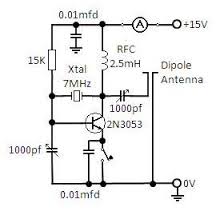
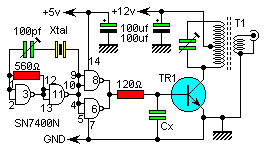
واتمتر دست ساز


احتمالا طرح EP2HZ و آقا مجید ماEP2MK همین بوده یعنی یک نمایش دهنده یا میتر داشته و با یک ولوم کار می کرده
مدارات الکترونیکی دوطرفه
با سلام
در مطلب قبلی و عکسهای ضمیمه آن که اگر کلیک بکنید یا ضربه به عکس بزنید عکس بزرگ میشه و بهتر دیده می شود
اشاره من به نوعی مدار الکترونیکی است که دوطرفه است مثلا فیلتر کریستالی که ورودی خروجی هم هست و بالعکس یعنی خروجی ورودی هم هست باصطلاح BIDIRECTIONAL یا دو طرفه یا مثلا در شکا آخری اون ته ته مدار ورودی آنتن هم برای ورودی گیرنده است هم برای خروجی فرستنده یعنی مدار پاور
عنایت کنید
اصل طرح را قبلا ارسال کرده ام ایجا گوشه سمت چپ بالای آن است نقطه A1 از آنتن آمده و بعد از فیلتر و خازن C29 هم به مدار TR1 و هم به مدار TR12 میرود یا وصل است یعنی هم ورودی سیگنال گیرنده هم خروجی موج فرستنده و یا در سمت راست مدار فیلتر کریستالی که یکی از آنها را میبینید هم به TR2 وصل است (خروجی مدار) و هم به TR11 متصل میباشد(ورودی مدار) اینکه کدام کار کند و کدام کار نکند خط ولتاژ+12VTX+ و یا 12VRX+ می باشد که ان مدار را خاموش یا روشن می کند معمولا ساختمان اینها مثل هم است کاملا مثل هم فقط در بعضی مدارات ممکن است با نصب خازن کوچکتر فرکانس پائین را فیلتر کرده و یا عبور هارمونیک هارا مانع شوند وگرنه شما مثلا در همین مدار 6 عدد مثل هم درست کرده بکاربرید ضمنا تقویت کننده هم بحساب می آیند و بهره دارند در حالت کار سیگنال عکس را عبور نداده و هزاران امتیاز دیگر
خانواده طرح معرفی شده قبلی
با سلام
اگر آپلود مطالبم کار کند و مجبور به کپی پیست مطالبم نباشم میخواهم چند طرح از یک خانواده که بهترین و ساده ترینش عرضه شد را جهت اطلاع تقدیم کنم
اصلیه این بود:
اگر روی طرح کلیک کنید صفحه بزرگ و باز خواهد شد
در گوشه سمت راست بلوک یا شمای طبقات فرستنده گیرنده را ملاحظه می کنید
در این طرح بخش ها در حد امکان جدا جدا طراحی شده اند که هم کار ساخت و تست و مونتاژ راحت تر باشد هم شمابتوانید بعضی بخش ها را عوض کنید مثل فیلتر کریستالی اسیلاتور محلی تقویت کننده ها و غیره
طرح بعدی:
در این طرح vfo پایینه برا 14 مگا و مطلب مورد نظر من کاربرد همان سویچ های ترانزیستوری است بجای رله و کنتاکت های بسیار زیاد آن در واقع با یک رله یا کلید ساده ولتاژ فرستنده یا TX و ولتاژ گیرنده یا RX بدست آمده و هر جا اعمال شود مدار فرمان میبرد
جالبی این یکی دوباند بودنشه که رله گذاشته و با تغییر اسیلاتور محلی از 14 به 7 میاد
ببینم دیگه چی دارم:
این آخری قشنگه برای اطلاع آقا مجید اومده بجای ششمین سویچ ترانزیستوری مستقیما از مدار مجتمع استفاده کرده سمت راست بالا
مطلب پایه فیلتر کریستالی است که از این سویچ های ترانزیستوری استفاده می کنند ولی اینجا در ورودی آنتن یعنی سمت چپ مدار هم به کار رفته اگر عمری بود در مورد این سویچ های ترانزیستوری و مزایا و کاربردشان بعدا توضیح خواهم داد قشنگی این مدارات این است واقعا جای رله میتوانید استفاده کنید یعنی شما تعدادی از آنها را ساخته هرجالازم داشتید بکار ببرید
رادیوی فرستنده گیرنده بافیلتر کریستالی خیلی ساده
با سلامی دوباره
در این طرح بجای رله و کلید از ترانزیستور استفاده شده 6 عدد بجای 6 کلید
جالبی مدار این است که خط مثبت فرستنده 3 کلید ترانزیستوری را برای فرستنده فعال کرده و 3 کلید ترانزیستوری دیگر خاموشند و بالعکس امتیاز دیگر تمام کریستالها یک فرکانس و حاصل جمعشان با VFO باید 14 مگا شود پس هر چی گیرتون اومد فقط از یک سریال و یک فرکانس بکار ببرید تازه میتونین اگه VFO از خودتون دارین اینجا بکار ببرین مثلا مال اون گیرنده قبلیه فقط باید با کریستالا بخونه
طرح ساده برای رادیو80 مترگیرنده و فرستنده گیرنده 14 مگا
باسلام و آرزوی سلامتی و موفقیت
در ابتدا طرح گیرنده را ببینید و بعد فرستنده گیرنده
لازم به تذکر است رفتن از 3.5 مگا به 14 مگا فقط تغییر فرکانس اسیلاتور محلی و مدار فیلتر باند پاس ورودی است و بس
در این طرح بجای رله و کلید از ترانزیستور استفاده شده 6 عدد بجای 6 کلید
البته در ادامه مطلب طرح ساده و کمی مشکل دار آنرا ملاحظه خواهید کرد
ادامه مطلب:
فریت بید FB801-43
با سلام
در جستجوهام امروز متوجه شدم این آقای آماتور ژاپنی منظورش از فریت بید مدل 43 می باشد و طرح زیر نمونه این ادعاست تقویت کننده 1 وات
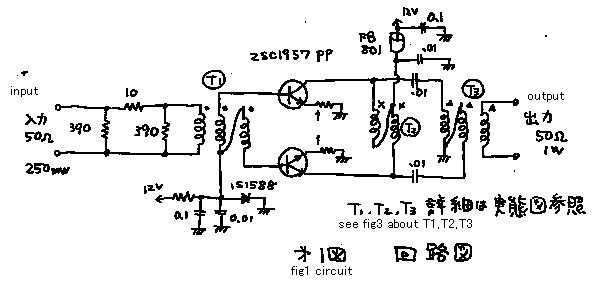
طرح بعدی فرستنده گیرنده 21 مگ بسیار ساده است
اول بلوک
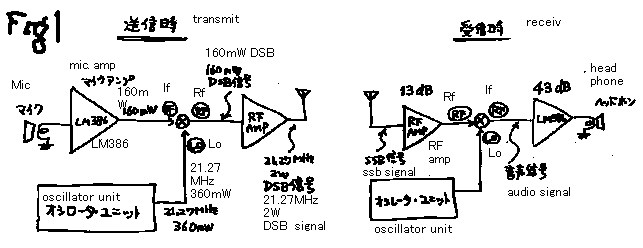
بعد خودش
بعد برد مدارش
بعدم خود دسگاش
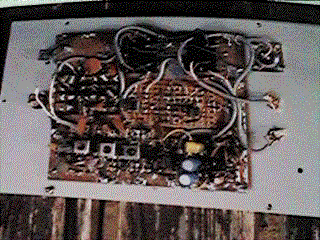
طرح بدون رله
با سلامی دوباره برای اطلاع دوستان
در اینجا تلاش فرستنده گیرنده های بدون رله می باشد بفرمائید:
ادامه طرحهای آماتور ژاپنی
در ادامه طرح ها در این مدارات از رله برای تغییر حالت فرستنده گیرنده استفاده شده اما در طرحهای بعدی از سایر مدارات منجمله ترانزیستور ها استفاده خواهد شد
14 و 21 تلفنی تک باند جانبی و 3.5 مگای تلگرافی
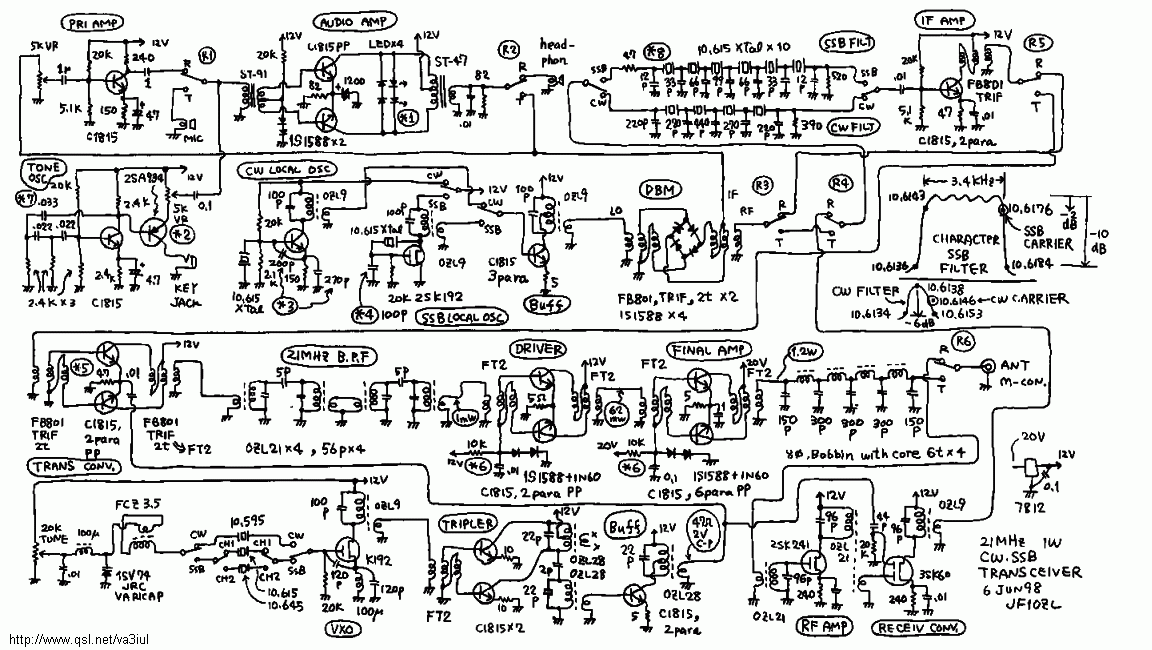
اینهم همین طرح ولی تمیز و اصلاح شده
چند طرح از دوست ژاپنی مون
با سلام و ارزوی سلامتی برای دوستان
در ادامه مطالبی که از این آقای ژاپنی در سایتش دیدم متوجه شدم از FB801 بسیار استفاده کرده شاید یک بسته خریده و حالا میخواد مصرفش کنه شایدم کاربرد راحتش یا استفاده در تلویزیون یا مداراتی که اوراق می کرده. در بعضی طرح های فرانسوی از هسته فریت های دوقلو که در مچینگ امپدانس آنتن 75 به 300 در تلویزیون های قدیمی کاربرد داشت استفاده می کرد به جای حلقه فریت
تلویزیون های قدمی و لامپی از آنتن و سیم دو رشته متقارن 300 اهم استفاده می کرد بعد داخل تلویزیون یک برد بود که دو سوکت ورودی آنتن 300 داشت یا بست پیچی بعد به بوبین تطبیق امپدانس وصل شده و 75 اهم کواکسیال داخل تلویزیون به تیونر میرفت . از موضوع پرت شدیم این فریت بید ظاهرا در بازار ما کمه مگر برای پارازیت گیر های کابل های کامپیوتر یا تغذیه لب تاپ که بست پلاستیکی داره و دو قسمتیه.
این فریت بیده 7ونیم در 2و سیو هشت در 7ونیم میله سه مدل هم داره با تراکم کم 125 و برای 250 تا 1000مگاست نوع دیگش تراکم متوسطه یعنی 850 که برا باند 25 تا300مگاس نوع سومش که میو یا ضریب تراکم زیادی داره یعنی2500 . کد اونهم 73 است برا فرکانس 500کیلو تا 50 مگاهرتزه اولیه کدش 65 و و سطی هم 43 است در استاندارد آمیدون آمریکا
مثلا801-43-fb مدلی که این آقا نوشته نداریم فقط جهت اطلاع عرض شد جالبه قیمت این مدل که نوشتم از همه بیشتره و بعد مدل 73 که بکار ما میخوره و ارزون ترینش مدل فرکانس بالاشه ینی بسته ای 5.25 دلار اولیه بسته ای 6 دلار بود
طرح هارا در ادامه مطلب به عرض می رسانم
بر محمد و آل او صلوات
DBM و کاربرد آن
باسلام
بدنبال مطالبی از قول دوست ژاپنی یک نمونه طرح با بلوک دیاگرام یا شمای طبقاتی تقدیم می گردد
طرح ساده و جالب است
بلوک یا نمای طبقاتی اینجا طرح در ادامه مطلب
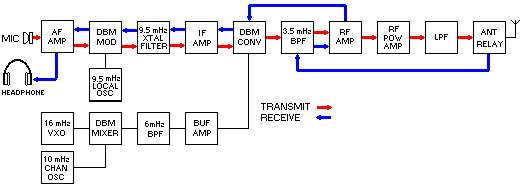
فریت بید (ادامه مطلب قبلی)
با سلام دوباره
این رفیق ژاپنی مون مطلب سیمها و فریت بیدو اینجوری توضیح داده :

DBM
با سلام
یکی از رادیو آماتورهای ژاپنی در سایتش مطالب زیادی گفته که جالبند و مطلبی راجع به مخلوط کننده ها یا Mixersشامل نیم موج و تمام موج و دوبلر فرکانس و مخلوز کنندههای دوبل بالانس گفته که سعی می کنم در حد توانم بازگو و ارائه نمایم
Kazuhiro Sunamura اسم این اقاست و سایتش هم http://www.intio.or.jp/jf10zl/
نکته جالب اینه که این آقا کارش رادیو نیست و علاقمند رادیو از 10 سالگی بوده داداش بزرگش رادیو تلویزیون خرابارو جمع می کرده اینم لامپ و چیزای بدرد بخورشو ور میداشته حال می کرده و واقعا بعضی کاراش بی نظیره
شغل اصلیش مهندس مکانیکه

توضیحات در ادامه مطلب:
synthsizer
باسلام و آرزوي سلامتي
در ادامه نماي طبقاتي يك نوسانساز 2 طبقه براي مگاهرتز و كيلوهرتز را تقديم مي كنم
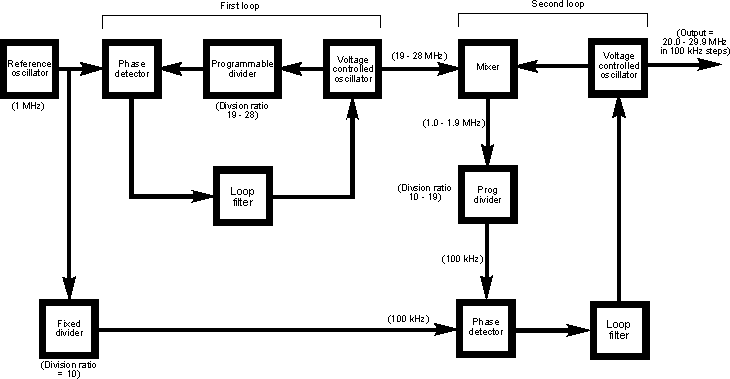
نمونه ديگري از حلقه قفل شونده فاز براي توليد فركانس جدا از حلقه
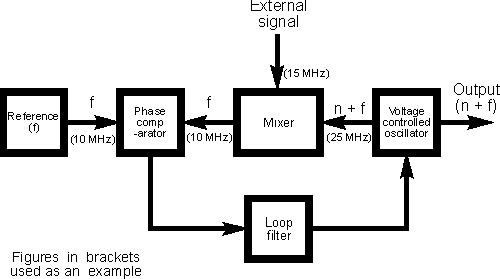
در اينجا از كاربرد تقسيم كننده مقدماتي براي كاربرد مدارقفل شونده فاز در فركانس هاي بالا مثلا گيگاهرتزي توضيح مي دهد:
syntisizer
سلام
مطلب ذیل نمونه ساده و قدیمی سینتی سایزر با ای سی های لاجیک می باشد
اين هم يك طرح جديد با يك اي سي
نوسانسازها - سينتي سايزر
باسلام
https://fa.wikipedia.org/wiki/%D8%AD%D9%84%D9%82%D9%87_%D9%82%D9%81%D9%84%E2%80%8C%D8%B4%D8%AF%D9%87_%D9%81%D8%A7%D8%B2
یک حلقه قفل فاز یا حلقه قفل شده در فاز (Phase Locked Loop)(PLL) یک سیستم کنترلی الکترونیکی است، که یک سیگنال قفل شده فاز متناسب با ورودی یا مرجع (reference)، میسازد. PLL در یک بازخورد منفی مشترک توسط مقایسه خروجی «اسیلاتور کنترل شونده با ولتاژ (VCO)» و ورودی فرکانس مرجع، با آشکارساز فاز، انجام میپذیرد. آشکارساز فاز برای هدایت فاز اسیلاتور، به سیگنال مرجع ورودی، استفاده میشود. این نوع از مدارات بطور گسترده در رادیو، ارتباطات مخابراتی، کامپیوترها و دیگر کاربردهای الکترونیکی استفاده میشود، که به این ترتیب است: **ساخت یک یا چند فرکانس، که از لحاظ پایداری و ثبات به فرکانس مرجع برسد.
-
- آشکارسازی یک فرکانس خاص
- باز گرداندن یک کلاک یا کریر به حالت اول خود
تحقیقات اولیه در زمینه آنچه که به عنوان حلقه با فاز قفل شونده میشناسیم به سال ادوین هاوارد آرمسترانگ، روش دیگری، یعنی به فرکانس مطلوب توان ورودی تنظیم شده و با سیگنال ورودی چند برابر میگردد. سیگنال خروجی حاصله شامل اطلاعات اصلی مدولاسیون صوتی میباشد. قصد ما این بود تا یک مدار گیرنده متناوبی را توسعه دهیم که به مدارهای میزان شده کمتری نسبت به گیرنده نیاز دارد. چون سریعاً از فرکانس خود خارج میشود برای اسیلاتور یک سیگنال (پیام) تصحیح خودکار تا آن را به مانند سیگنال مطلوب، در فاز و فرکانس یکسان، نگه دارد. این تکنیک در سال
ادامه مطلب در ادامه مطلب:
مدارات متنوع - سينتي سايزر
با سلام
در كار ارتباطات و راديو ايجاد موج راديو به روش قديمي استفاده از نوسانساز ثابت (كريستال) يا متغير بوسيله خازن متغير يا بوبين متغير و يا ولتاژ متغير ايچاد مي شد
در مدارات جديدتر از مدارات نوسانساز كنترل شده و قفل شونده اختلاف فاز ويا با استفاده از كامپيوتر و روشهاي ديگر استفاده مي شود كه در حد توان از اين نوع مدارات اشاره خواهم كرد
در نوسانسازهاي مدرن (ديجيتال) فركانس نوسانساز كنترل شونده بوسيله ولتاژ يا اختلاف فاز در مداري سنجيده و تبديل مي شود
سینتی سایزر به سیستم الکترونیکی گفته می شود که نوسانات الکترومغناطیسی با فرکانس انتخابی را به صورت دقیق تولید می کند. سینتی سایزر برای تولید نوسان دلخواه از یک نوسانساز (اسیلاتور) دقیق (معمولا کریستالی) و یا یک سیگنال زمانبندی مرجع به عنوان ورودی استفاده می کند و در یک بازه فرکانسی می تواند نوسانهایی با فرکانس مطلوب را بر اساس سیگنال مرجع به صورت دقیق و قفل شده تولید کند.
اصول سینتی سایزرها
ادامه مطلب در ادامه مطلب:
74HC240
با سلام
مطلبي در مورد اي سي طرح ديروز ديدم كه برايم جالب بود
شما هم توجه بفرمائيد بد نيست
Tests with the 74HC240
The IC 74HC240 was initially used in transmitters by the american ham N7KSB, who built versions for 10m (0.9W), 15m and 20m (0.5W) and with a vertical ground plane antenna worked more than 30 countries and all the continents. See the link to:
http://www.madisoncounty.net/~kj5tf/n7ksb.html
Other ham using them was K0JD, who uses the 74HC240 as a buffer for VFOs, he also mentions the use of the 74HC04 and the 74AC04.
http://www.seboldt.net/k0jd/hcbuffer.html
The 74HC240 is an 8 bit inverter buffer in origin, so it has 8 inverter gates enabled by groups of 4 (2 enables). The nominal working voltage is 5 Volts, though most people makes it work at 8 Volts in order to increase the power.
Another example is the famous Christmas Cracker, a 40m 1/2W transceiver using the 74HC240 as VFO - buffer - PA and driver for the balanced diode receiver mixer, built by G3CWI. See in:
http://www.qsl.net/g3cwi/christma.html
Another implementation is in german in the site:
http://www.ardf.ch/Technik/Tx_80m.htm
A very good work can be seen in the NorCal 38 SPECIAL 30m transceiver, where the 74HC240 is the transmitter PA, see it in:
Schematic in http://www.norcalqrp.com/kits/38spcl/38sch.html
Specifications in http://www.norcalqrp.com/kits/38spcl/38spcl.htm
Parts list in http://www.norcalqrp.com/kits/38spcl/parts.html
Our friend Gomes PY2MG already drew a VFO-Buffer with the 74HC240 in an AM 10W TX in:
http://www.qsl.net/py2mg/Images/LU8EHA_TX.PDF
The LU8EHA original work is in:
We have another (cuban) version of the N7KSB work in:
http://www.radiohc.org/Distributions/Dxers/ultra-simple-transmitter.html
Finally 4S7NR drew more informs about the 74HC240 application in:
http://www.qsl.net/qrp/tx/logi-tx.htm
توضيحات در ادامه مطلب:
IRF510
با سلام
طرح جالبي براي اين ترانزيستور ديدم گفتم شماهم ببينيد
مطلب اصلي استفاده از IRF510 است و نكته جالب تر راه انداز اين ترانزيستور و از آن جالب تر استفاده از كريستال يا فركانس متغير
من اينجوريشرو نديده بودم
توجه بفرمائيد:
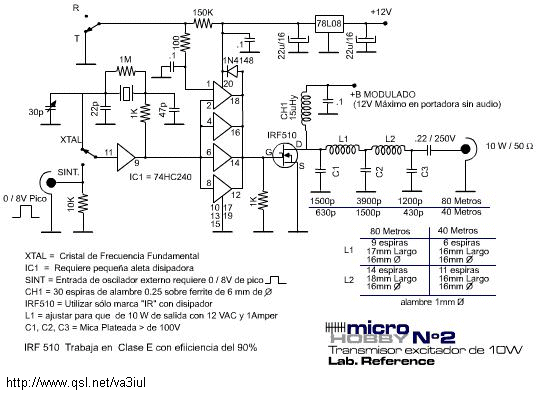
در مورد اين طرح نكته جالب مدولاسيون آن است كه روي خط تغذيه ترانزيستور مدولاسيون انجام مي شود
بقيه اطلاعات روي شكا هست آدرس سايتم كه حي و حاضر
والسلام
انواع آنتن ها-آنتن های اندازه گیری و مونیتورینگ
با سلام
آنتن های اندازه گیری و مونیتورینگ
اين مطلب جالبي بود در سايت زير كه به نظرم با ارزش و مهم اومد
http://www.electricalbank.com/Articles-pa-showpage-pid-180.html
بخشي از مطالبش در باند اچ اف و پائينتر بود كه به كار ما هم مي خورد
يكبار خواندنش لازم و قابل توجه است
زحمت كشيدن دستشان درد نكند
ادامه مطلب:
انواع مقره ها
با سلام و تبريك سالروز ولادت منجي عالم قائد اعظم نور ديده زهراي اطهر گل سر سبد وجود يوسف فاطمه حضرت مهدي صاحب زمان (عجل)
در ادامه بحث آنتن ها جهت عايق بندي و جدا كردن سيم آنتن از سيم هاي نگهدارنده و از همديگر بايد يك وسيله عايق استفاده شود
در خيلي قديم ها كه سيم هاي برق بدون روپوش بود از قطعات چيني استفاده مي كردند كه دو سوراخ عمود بر هم داشت و از هر طرف جدا كشيده و استفاده مي شد

البته مدل هاي ديگر مقره هاي عايق چيني هم هست كه براي برق فشار قوي استفاده مي شود

اين هم يك مدل است ورق فايبرگلاس يا پلاستيك ظخيم و محكم و البته رنگ روشن چون رنگ تيره و سياه مقاومت كمتر و هدايت بيشتري دارد (از نظر مواد تشكيل دهنده)

ايده هاي مختلف براي مقره:

كاري كه من با ماوس قديمي كردم
اين هم مدل جنگي يا جنگليش:
انواع آنتن - آنتن تمام باند
باسلام
در بررسي انواع آنتنها به نوعي از آنتن ها مي رسيم كه به اصطلاح باند پهن يا تمام باند هستند
چند نوع از آنها را در ادامه تقديم خواهم كرد






انواع آنتن ها
با سلام و آرزوي سلامتي
در ادامه مطلب انواع آنتن ها آنتن ورتيكال يا عمودي را به عرض مي رسانم






آنتن ها و انواع آن
با سلام وتبريك مجدد ايام
در بررسي انواع آنتن ها رفرنس و پايه سنجش توان و مبناي مقايسه يك آنتن دايپل يا دوقطبي ساده مي باشد كه واحد انتشار در نظر گرفته مي شود
در يكي از بازديدها از يكي از صنايع مخابرات داخلي در سالهاي گذشته كمي دور از كيفيت پائين آنتن 6 دي بي dB تمام سمت و 9 dB تك سمت شكايت به مهندس محترم كنترل كيفيت و مسئول فني شركت اعلام شد بنابر نظر بچه هاي نصاب آنتن گراند پلاين يا تغذيه از ته سوزني كه تك پل بوده و بهره اش از دايپل يا دوقطبي كمتر است بردي بيشتر از آنتن هاي گين 9 دي بي شما دارد
آقاي مهندس برآشفت و مطرح كرد امكان ندارد مدرك بياوريد منهم گفتم اندازه مجاز تغييرات طول هر دايپل تاشده يا خميده شما نسبت به هم چقدر است
جهت اطلاع عرض مي شود اين آنتن 4 دايپل خم شده دارد كه در 4 سمت اگر باشند 6و اگر رو به يك سمت باشند 9 دي بي بايد نسبت به دايپل تكي بهره يا گين داشته باشد آنتني هم كه بچه هاي نصاب مي گفتند ميله اي فلزي است كه به مغزي مادگي سوكت آنتن لحيم شده و روي بدنه خودرو يا صفحه اي فلزي نصب مي شود تاكسي هاي بيسيم همه دارند
بهره اش از دايپل كمتر است
آقاي مهندس فرمولي ونسبت را گفت كه من گفتم اندازه ميليمتر يا سانتي متر بگو
گفتند به فركانس بستگي دارد گفتم مثلا 150 و حساب كرد و گفت 2/2 ميليمتر
من هم گفتم با 5 سانت و 6/5 سانت چطوري و ايشان گفتند امكان ندارد منهم اشاره كردم در ساختمان مجاور پشت پنجره در فركانس 152 طول دايپل 3و4 نسبت به اولي اينقدر اختلاف دارد
ايشان هم فرمودند اينها آنتن هاي قديمي ماست كه با دست خم مي شده و حالا ديگر اينطور نيست
من هم اشاره كردم يعني جديدا بجاي دست با پا خم ميكنيد بهر صورت ما هم از اينها گرفته ايم و همه آنها دچار مشكل هستند.
خلاصه اين هم درد دلي از من كه خودم نوع ديگري از اين آنتن هارا مي خواستم توليد كنم و در چند پست قبلي اشاره شد.
يادش به خير
انواع آنتن ها helical
با سلام
در ميان انواع آنتنها چشمم به آنتني خورد كه معمولا براي UHF . SHF بكار ميرود اما حالا براي اچ اف آمده بود
مواد لازم براي ساخت اين آنتن:
طناب نايلني به قطر 6 ميليمتر 2 تكه 10/75 متري
سيم روكش دار به قطر 2 ميليمتر 2 تكه هركدام 20/5 متر
مقره عايق 3 عدد
طناب براي محكم نگهداشتن انتن و اتصال به ديوار يا درخت يا ميله نگهدارنده به مقدارلازم
كابل اتصال به راديو RG8U به مقدار مورد نياز
طرز تهيه در ادامه مطلب:
انواع آنتن ها
با سلام و تبريك ايام پربركت مبعث رسول اكرم
درادامه بحث انواع آنتن ها مطلبي را در سايت زير ديدم كه برايم جالب بود اميدوارم براي شما هم جالب توجه باشد آنتن آپارتماني www.qrpmania.com
توضيحات در ادامه مطلب:
مبعث رسول اكرم (ص)
با سلام وتبريك سالروز بعثت پيامبر اكرم (ص)
در ادامه مبحث انواع آنتن ها چند نوع ديگر آنتن در ادامه مطلب ارسال خواهد شد
res.swr bridge
با سلام
نمونه ديگري از طرح قبلي را مي آورم كه از ZEROBEAT.NET مي باشد

نكته مهم استفاده هاي از اين مدار است
مثلا اگر در خروجي مقاومت بار مجازي ثابت كه در طرح اصلي 51 اهم و در طرح من 75 اهم است را بجاي آنتن قراردهيم
بشرط رعايت توان مجاز مدار مثلا2وات يا در طرح من نيم وات ميتوان مدار خروجي فرستنده را تنظيم كرد
اگر امپدانس را بالاتر در نظر بگيريم در طبقات مياني يا ساير بخش ها قدرت فرستنده يا بخش را اندازه گيري يا تنظيم نمود
كه در مداراتي كه از بوبين با هسته متغير يا خازن تنظيم پذير (تريمر) استفاده مي كنند كاربرد دارد
ميتر طرح قبلي يك ميلي آمپر بود و در اينجا 100 ميكرو و ميتر اهم متر من 50 ميكرو آمپر است

ورود کاربران

عضويت سريع

پشتيباني آنلاين

آمار

خبرنامه

آخرین نطرات کاربران
 جواد یاور مطلق - درود
جواد یاور مطلق - درود بلا بدور باشه مهندس !
انشالله همیشه سرحال سالم تندرست باشید !
پاسخ:با درود و سپاس از لطف شما دوست گرامی بدرود - 1403/1/29
 یک هم وطن - من بدون مدار این رادیو ساختم باصدای واضح و بلند بدون برق و باطری
یک هم وطن - من بدون مدار این رادیو ساختم باصدای واضح و بلند بدون برق و باطری پاسخ:باتشکر از لطفتان امیدوارم بقیه دوستان هم همت کنند و دست به اچار و هویه شده خودشان بسازند و لذت ساختن را ببرند چون در داشتن لذت نیست هنر ساختن است - 1402/6/13
 AEC - درود
AEC - دروداستاد ممنون خیلی خوب و عالی
پاسخ:باسلام و تشکر از لطف و مرحمت شما دوست عزیز و گرامی - 1400/8/28
 پرویز مهرزاد - سلام ودرود استاد عبدالحق عزیز بسیار خوشحالم که سایت جنابعالی بامطالب جدید وعالی دوباره فعلیتش را شروع نموده است.
پرویز مهرزاد - سلام ودرود استاد عبدالحق عزیز بسیار خوشحالم که سایت جنابعالی بامطالب جدید وعالی دوباره فعلیتش را شروع نموده است.پاسخ:با سلام تذکر بجا و بموقعی بود بسیار متشکرم - 1400/8/28
 ایزدی - یه مشکلی داره این طرح. کل سلف ها با هم 12. 7 میکرو میشه که با خازن 270 پیکو، فرکانس مرکزی فیلتر 2.7 مگا هرتز می شه. کمترین سلف هم (0.1 میکرو) با همون خازن 270 پیکو 30 مگاهرتز رو رد می کنه. بنا بر این نیازی به خازن های دیگه نیست. دوستان دیگه نظرشون چیه.
ایزدی - یه مشکلی داره این طرح. کل سلف ها با هم 12. 7 میکرو میشه که با خازن 270 پیکو، فرکانس مرکزی فیلتر 2.7 مگا هرتز می شه. کمترین سلف هم (0.1 میکرو) با همون خازن 270 پیکو 30 مگاهرتز رو رد می کنه. بنا بر این نیازی به خازن های دیگه نیست. دوستان دیگه نظرشون چیه.پاسخ:باسلام و تشکر کل خازن ها و سلفها برای فرکانس 1800کیلو که ابتدای باند رادیو اماتوری است کم است و بسختی تنظیم می شود اما برای 3500 بله زیاد است - 1399/8/24
 هومن - سلام .علت استقبال نکردن در خور توجه همین نا واردیست .این مطلب بسیار گنگ و پر از اشتباه هست
هومن - سلام .علت استقبال نکردن در خور توجه همین نا واردیست .این مطلب بسیار گنگ و پر از اشتباه هست پاسخ: سلام بنده هم ضمن تائید نظر شما درخواست می کنم مطلب کامل تر و بهتر و درست تر را بفرمائید بنده بنام خودتان درج و منتشر نمایم
پاسخ:https://t.me/joinchat/AAAAAEJj30AwLGIyi_UQ3g مدارات لامپی - 1396/12/17
 علی - سلام شما مکتبی و انقلابی هستید درسته ؟
علی - سلام شما مکتبی و انقلابی هستید درسته ؟پاسخ: سلام بهیچ عنوان و تقریبا هیچ جائی من چنین ادعائی نکرده ام اما این همه شهید و زخمی و جانباز و اسیر و زحمت و فعالیت برای حفظ انقلاب و سرزمین عزیزمان ایران خیلی حرام لقه گی و بی اصل و نصبی می خواهد که چشم خودرا ببندیم و از این اب و خاک حمایت و به این مردم عشق نورزیم حالا شما اسم انرا هرچه دوست دارید بگذارید نظرتان محترم است - 1396/12/17
 هومن - سلام
هومن - سلام بنده یکی از علاقمندان لامپ هستم . و 10 سال اخیر را بر روی مدارات لامپی کار کردم .با سرچ اینجا را پیدا کردم .می خواستم ببینم در زمینه مخابرات فعالیت لامپی در ایران هست ؟
این مطلب راجب لامپ واقعا توجه مخاطب علاقمند را جلب می کند ؟
من فکر می کنم نویسنده اصلا راجب لامپ حس خوبی ندارد .عذر خواهی می کنم
پاسخ:سلام دوست عزیز از صراحت و فصاحت بیان شما خوشحالم مطلبتان راجع به نویسنده مطلب لامپ کمی کم لطفی و شاید سخت گیری در بر دارد نویسنده مطلب استاد عاملی بزرگ رادیو اماتوری ایران هستند و مطلب را بی اندازه ساده و اسان گفتند چون اکثر جوانها از لامپ و ولتاژ کار ان وحشت داشته و تقریبا هیچ نمی دانند اما ظاهرا شما در مورد لامپ مطلع و ازموده هستید لذا برخود نگیرید شما هم اگر در مورد لامپ و یا مطالب استاد عاملی نقد و نظری دارید بسیار خوشحال می شوم مکتوب بفرمایید تا در همان بخش یا در بخش جدید بنام خودتان منتشر شود
پاسخ:https://t.me/joinchat/AAAAAEJj30AwLGIyi_UQ3g - 1396/12/16
 سعیدی - سلام استاد بنده بی جواب ماندم
سعیدی - سلام استاد بنده بی جواب ماندم پاسخ:با سلام و پوزش از تاخیر طبق تجربه دوستان این مدار به دلیل نامرغوب بودن قطعات نو موجود در بازار معمولا در ابتدا کار نمی کند لذا بتوصیه استاد عاملی بهنر است از قطعات اوراقی رادیو و ضبط ها استفاده شود قطعات معمولا در گیر این رادیو ابتدا ای سی سویچ یا کلید زنی است که یک مدل خاصش برای مدار مناسب است و مدلهای دیگر فرکانس کار و ولتاژشان مناسب نیست درمورد ای سی مدولاتور و دمدولاتور 3028 این ای سی هم بشدت مورد شک و شبهه است در موردی باتعویض 5 عدد ای سی دو عدد که بهتر بود در مدار بکار گرفته شد لذا بهترین روش استفاده از مرحله مرحله و گام بگام کار کردن رادیو است ضمن انکه اگر فرستنده کار بیفتد گیرنده هم کار خواهد کرد و بالعکس لذا شما می توانید مدار را از میکروفون در حالت فرستنده یا بلندگو در حالت گیرنده شروع نمایید و اگر مسیر سیگنال جدا باشد در نقشه شما می توانید از تقویت صدا شروع کرده و به دمدولاتور رفته و سپس به فیلتر و بعد میکسر وی اف او و در اخر به فیلتر تنظیم باند بروید و حد اکثر سیگنال و حساسیت را بدست اورید پس فیلتر های رادیویی یا بقول شما توکو ها قسمت اخر تنظیم و تعقیب مدارتان است اگر شد برای اطلاع شما و سایر دوستان مدار را در حالت گیرنده و فرستنده جدا اراعه خواهم داد یا با رنگ مسیر سیگنال را جدا می کنم که راحت تر باشد اگر شما عضو تلگرام هستید در یکی از گروه های رادیو اماتوری بیایید و مستقیما با دوستان سازنده و استفاده کننده رادیو تماس گرفته راهنمایی شوید اگر نه ادرس ایمیلتان را بدهید تا راهنمای مونتاژ را برایتان بفرستم
پاسخ:http://py2ohh.w2c.com.br/trx/ararinhamontagem/montandoararinha.htm
راحل مونتاژ و تست مدار است - 1396/11/5
آرشیو
- تير 1403
- مهر 1402
- ارديبهشت 1401
- دی 1400
- آبان 1400
- ارديبهشت 1399
- اسفند 1397
- آذر 1397
- آبان 1397
- خرداد 1397
- ارديبهشت 1397
- فروردين 1397
- اسفند 1396
- بهمن 1396
- دی 1396
- آذر 1396
- آبان 1396
- شهريور 1396
- مرداد 1396
- تير 1396
- خرداد 1396
- ارديبهشت 1396
- فروردين 1396
- اسفند 1395
- بهمن 1395
- دی 1395
- آذر 1395
- آبان 1395
- مهر 1395
- شهريور 1395
- مرداد 1395
- تير 1395
- خرداد 1395
- ارديبهشت 1395
- فروردين 1395
- اسفند 1394
- بهمن 1394
- دی 1394
- آذر 1394
- آبان 1394
- مهر 1394
- شهريور 1394
- مرداد 1394
- تير 1394
- خرداد 1394
- ارديبهشت 1394
- فروردين 1394
- اسفند 1393
- بهمن 1393
- دی 1393
- آذر 1393
- آبان 1393
- مهر 1393
- شهريور 1393
- مرداد 1393
- تير 1393
- خرداد 1393
- ارديبهشت 1393
- فروردين 1393
- اسفند 1392
- بهمن 1392
- دی 1392
- آذر 1392
 Anyone can pass these exams, including the Extra exam, if they're willing to invest the time and study smart.
Anyone can pass these exams, including the Extra exam, if they're willing to invest the time and study smart. 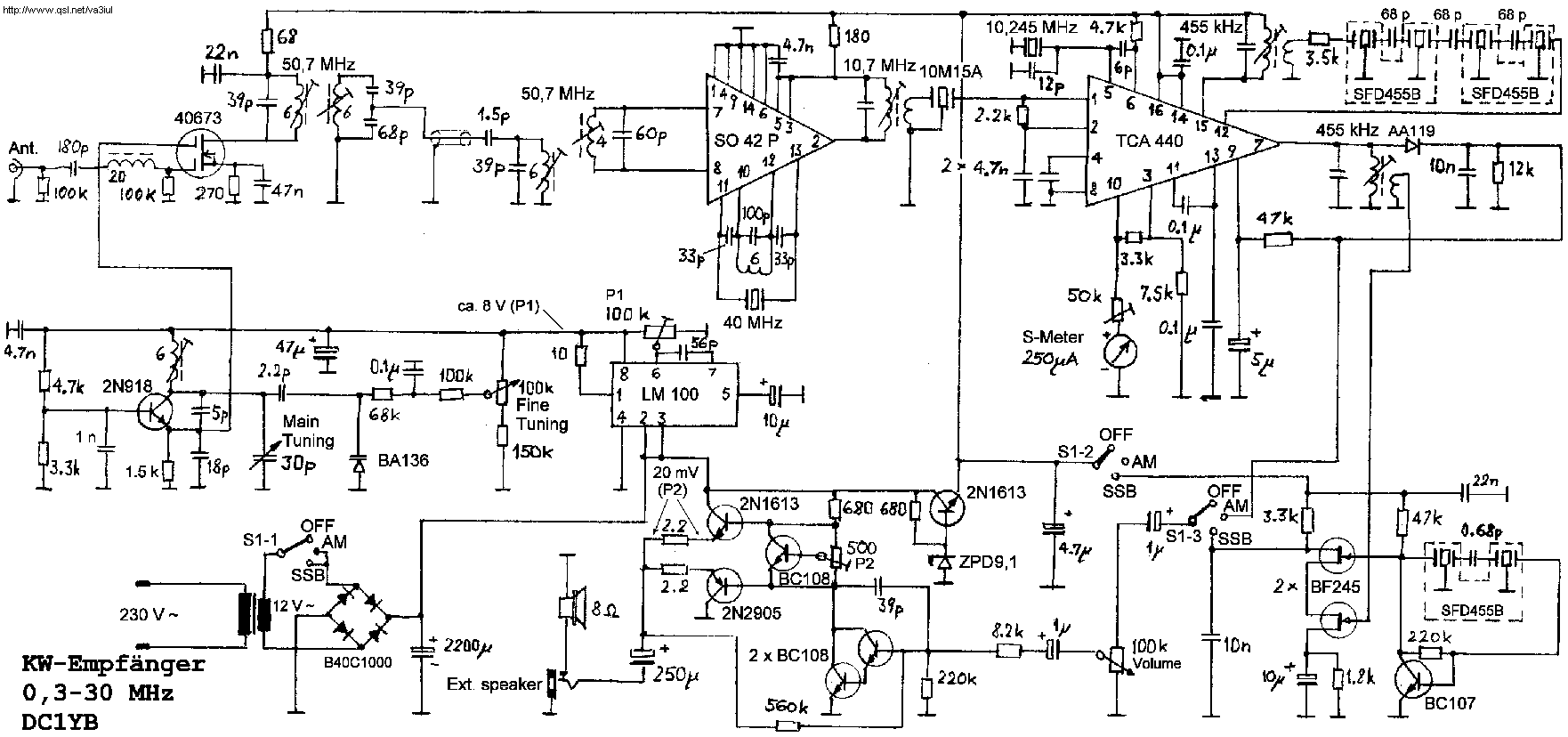

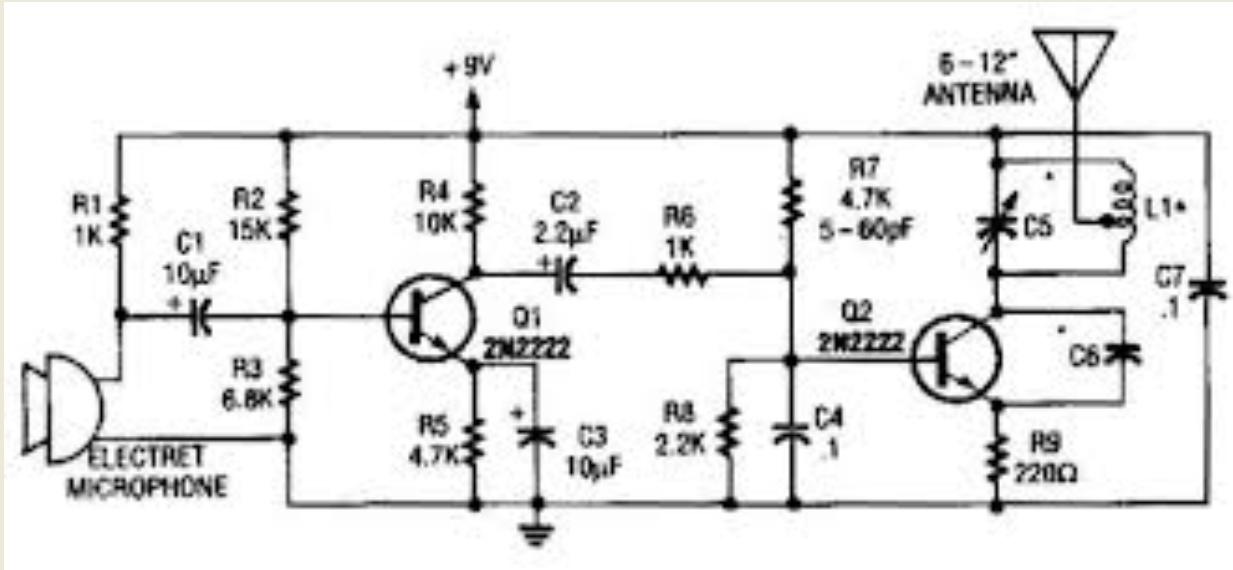
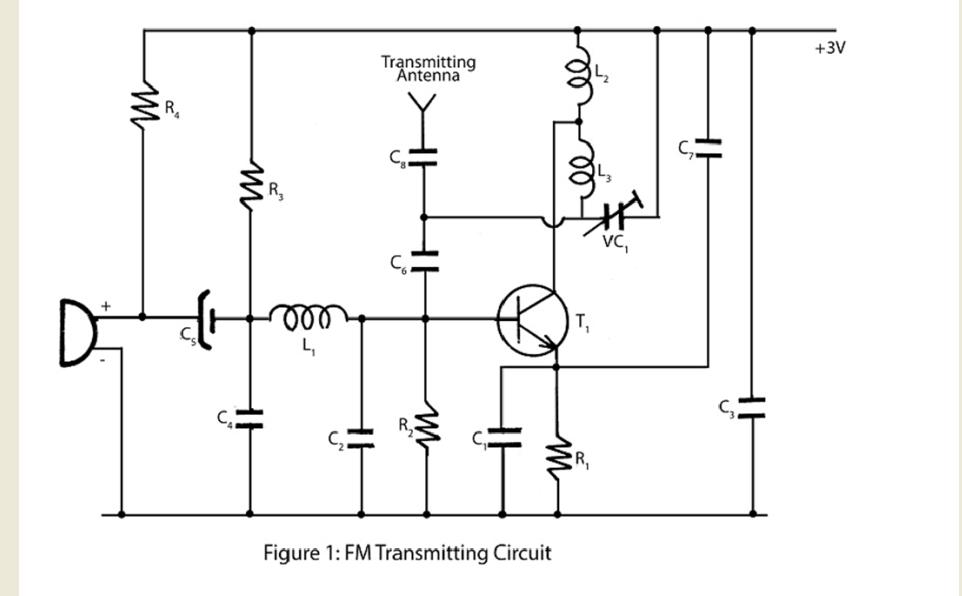
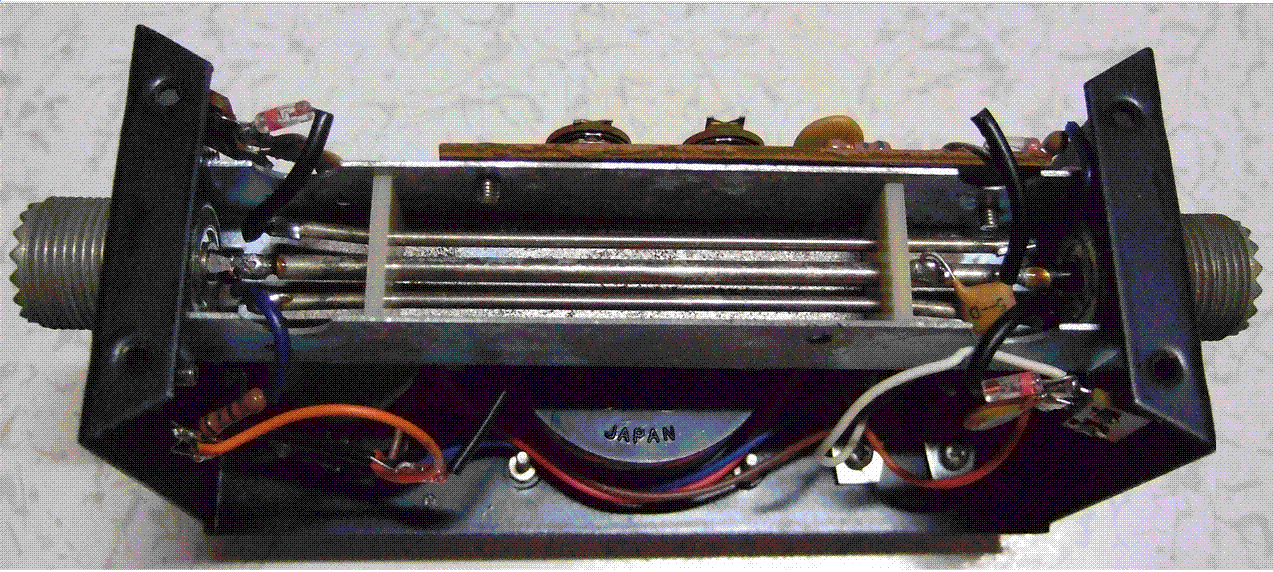
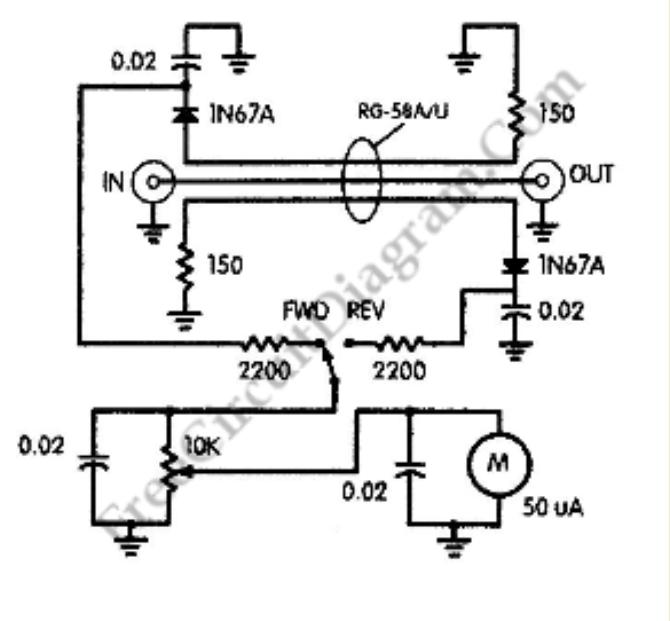

.gif)

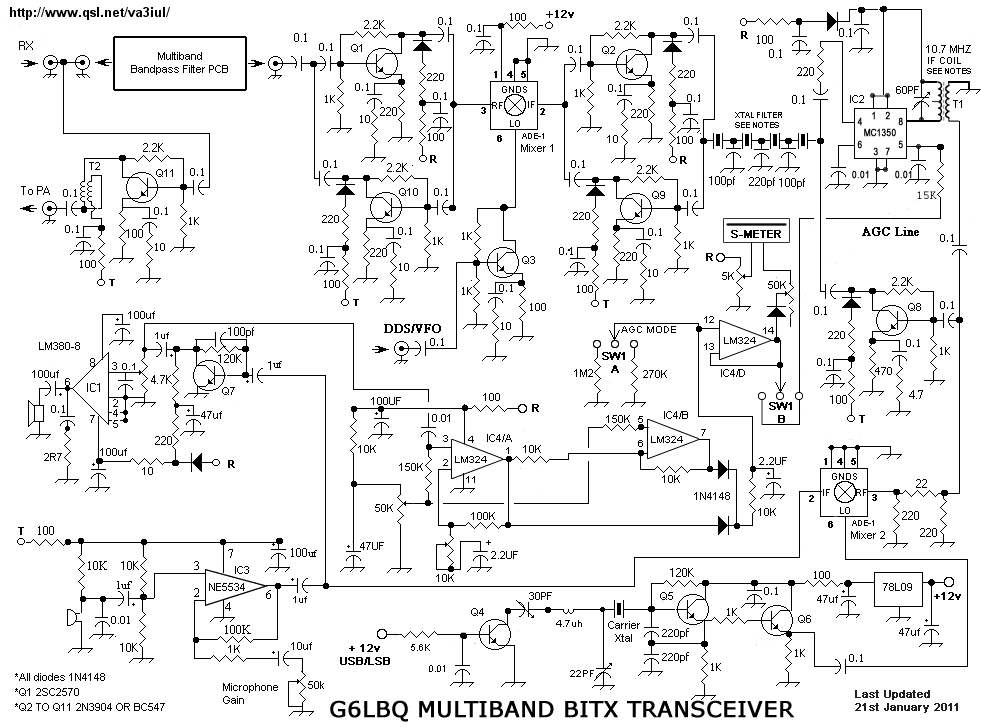
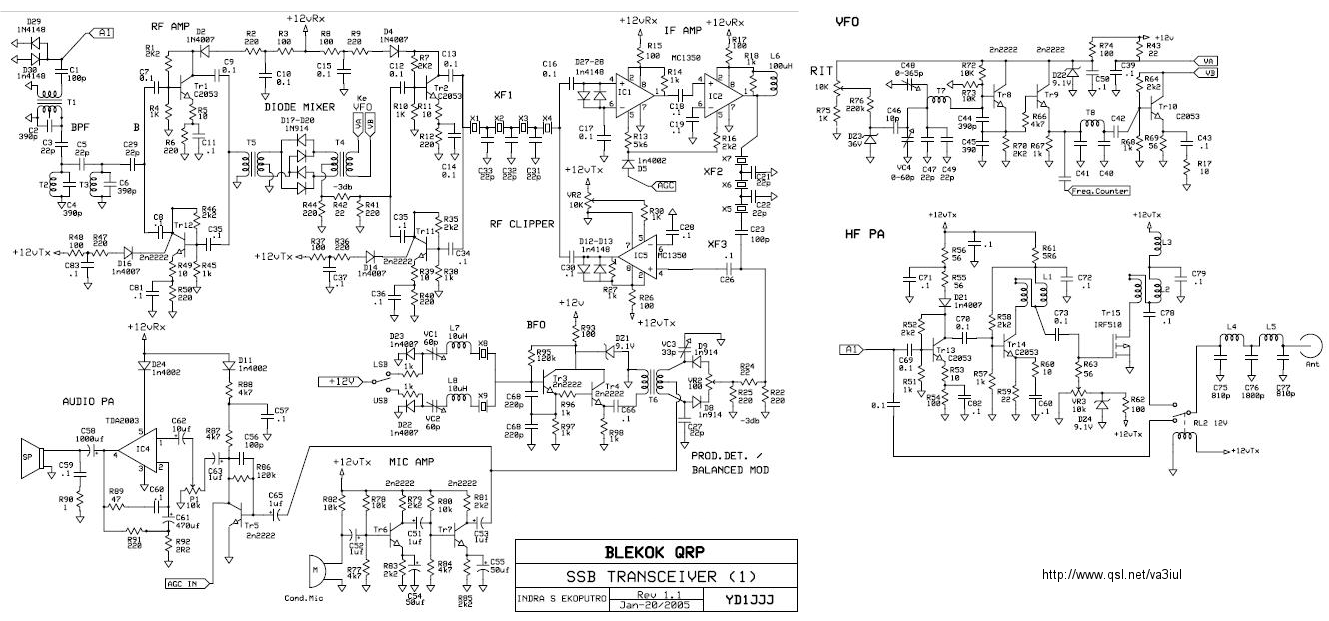

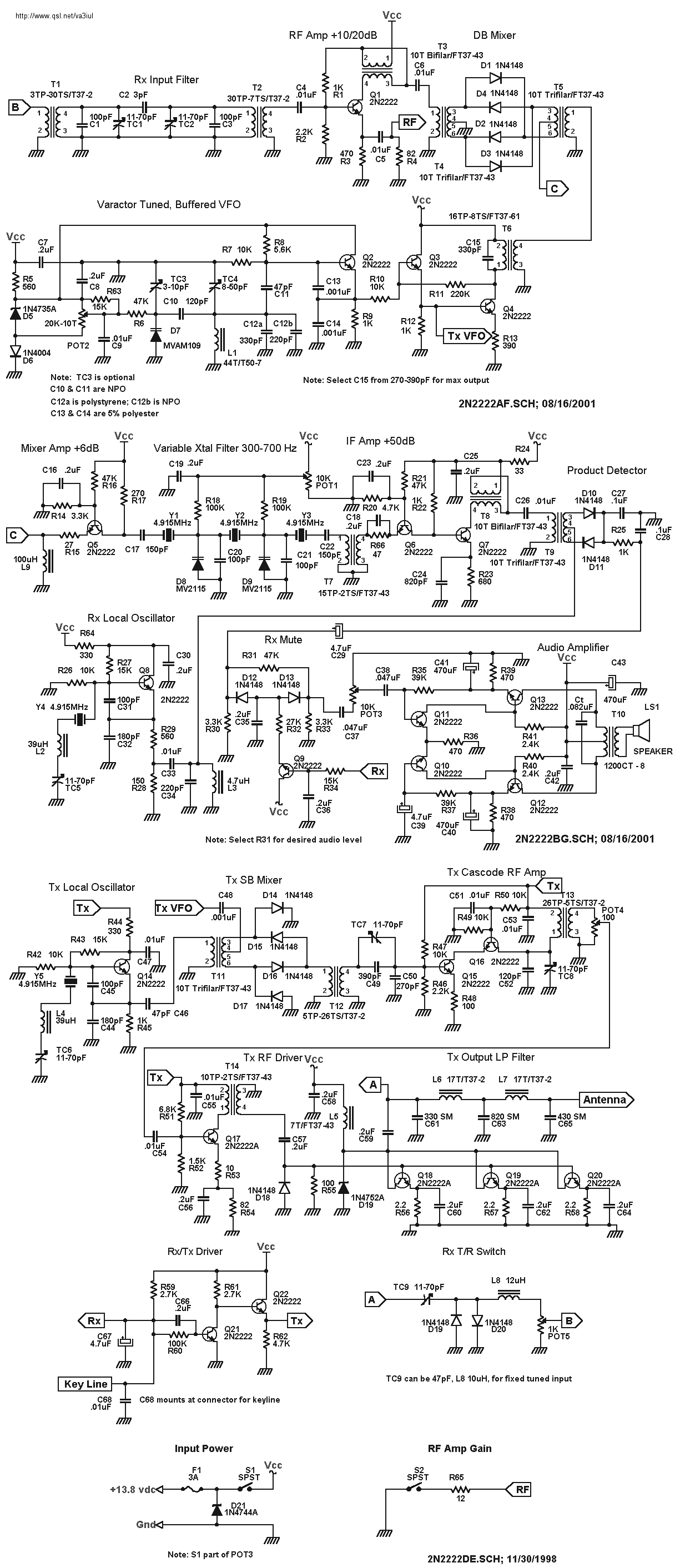


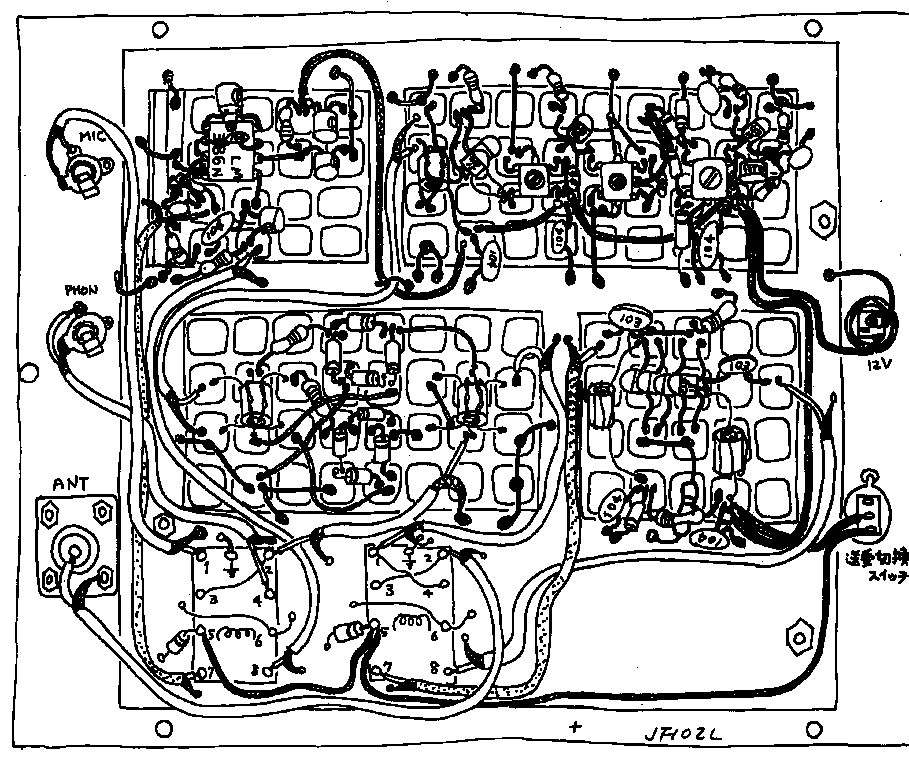
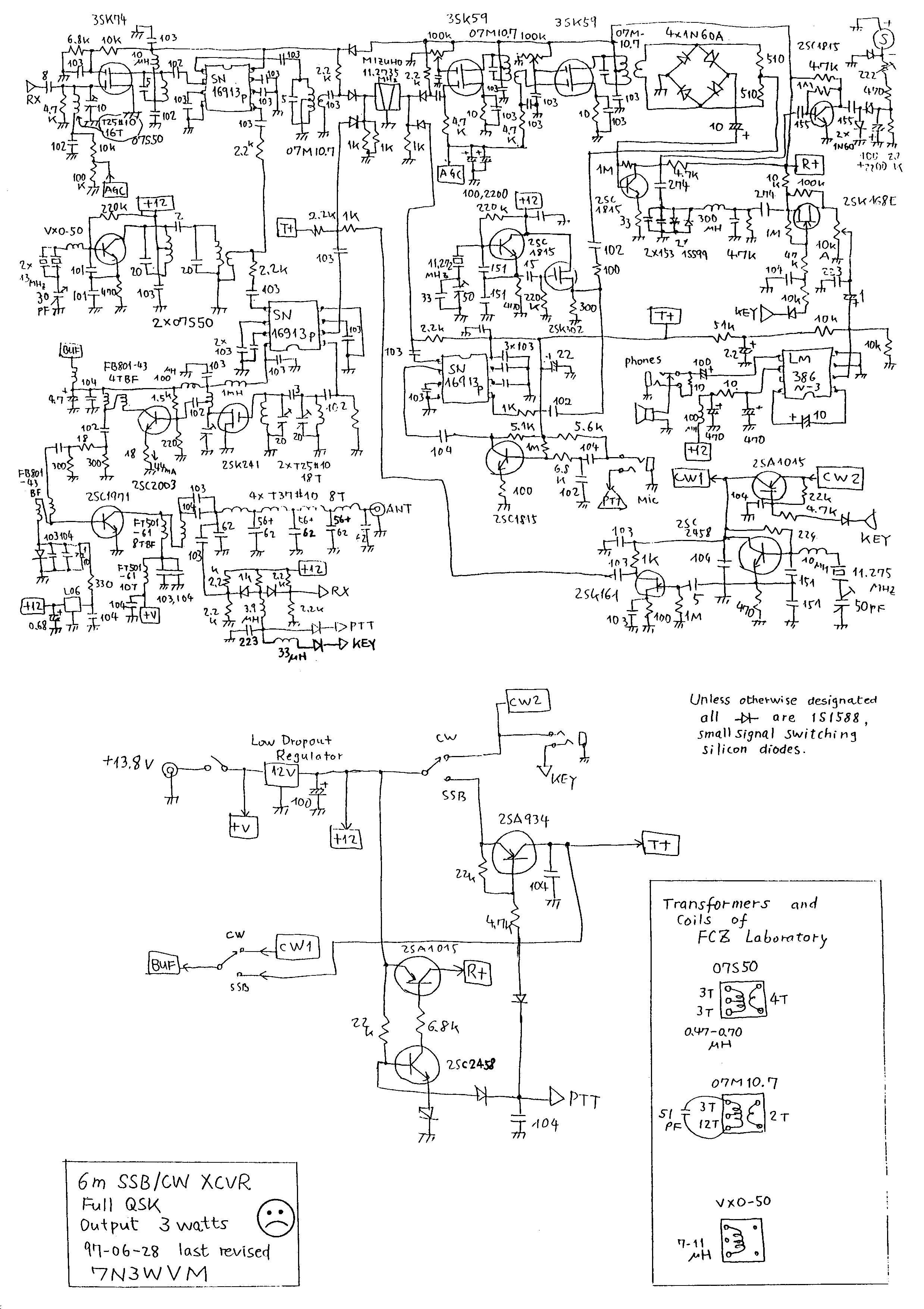
.gif)
.gif)
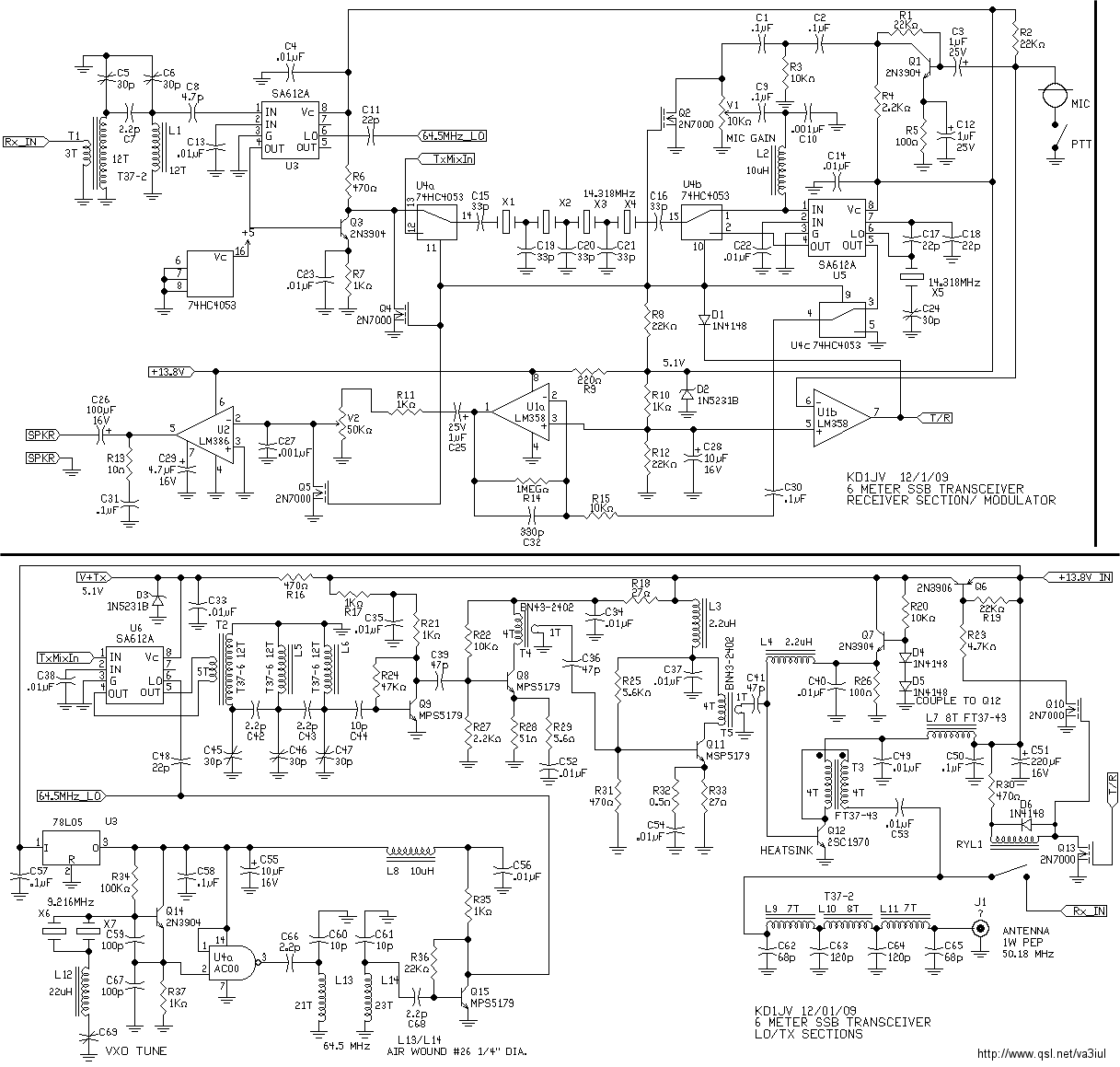

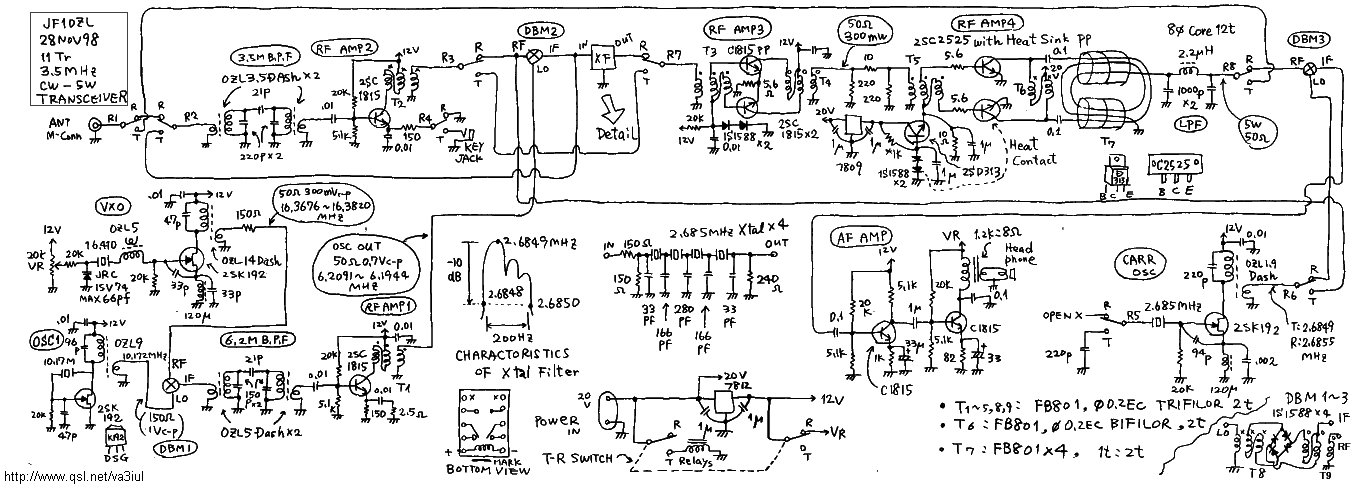
.gif)
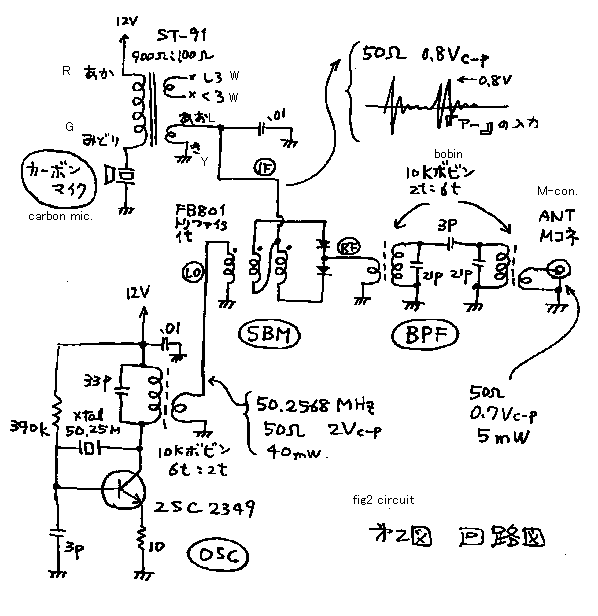
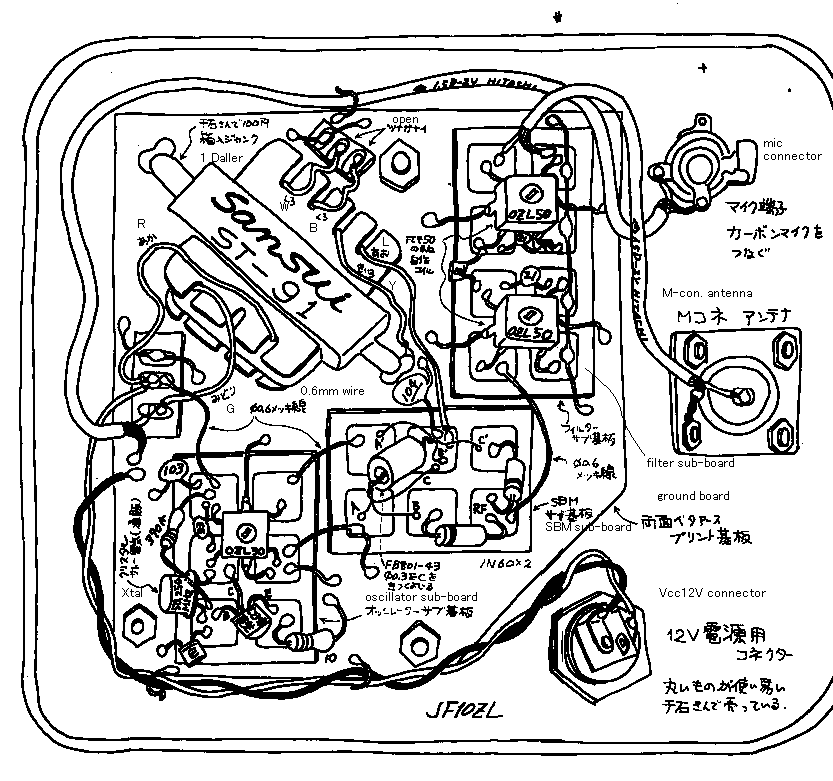

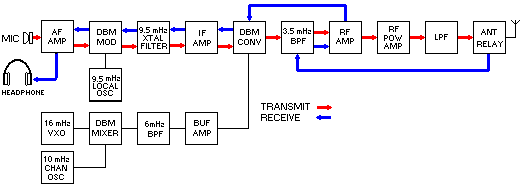
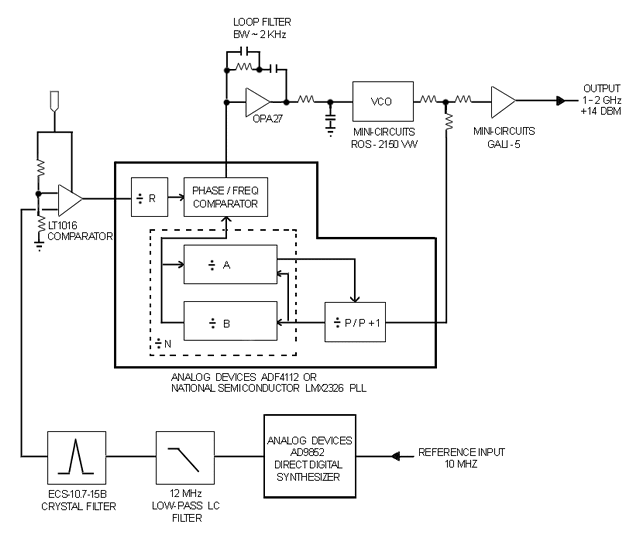

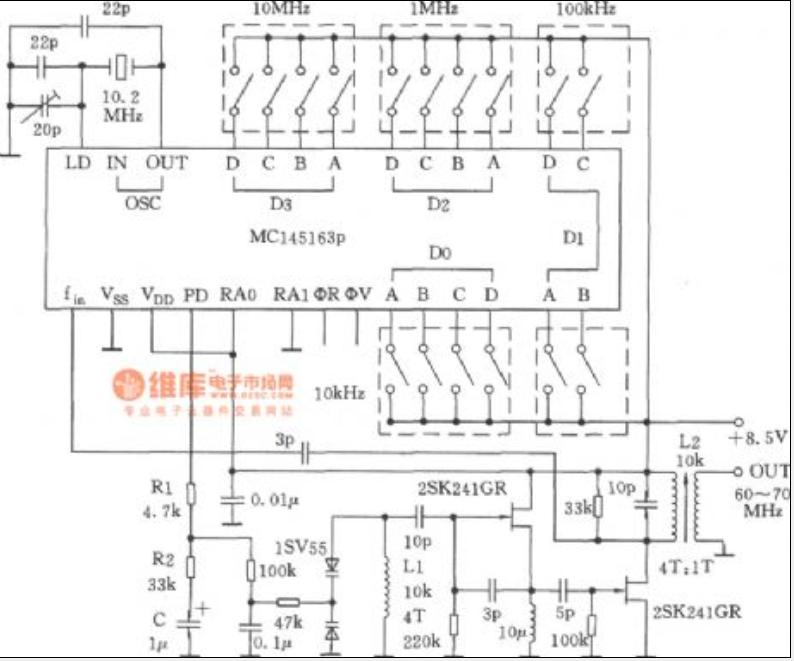


 با سلام
با سلام













.jpg)







